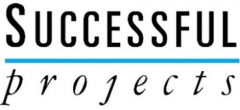Project Risk Game
What Makes Project Risk Game a Success?
It is intriguing and engaging. The gameboard, risk cards, parts and pieces grab learners’ attention. This helps put learners in the right mindset to interact and learn. Even the most experienced project managers are disarmed and charmed. It strikes a balance between educating and entertaining the learner.
Thinking about their project differently. Brain churning equals learning. The game activities prompt learners to think, act, analyze, and question how the risks are being handled on their own projects. Repeated plays can actually train a learner’s brain to scan through the risk strategy options almost automatically when they occur in real projects.
Discovering and concluding occurs organically. Participants are able to draw their own conclusions. The simulation helps bridge game outcomes with their selected strategies. Learners tend to get many insights from the simulation rather than taking away only one or two lessons.
Jump-Starting. Participants are able to start playing the game after a very short introduction. The games complexities do not all need to be understood in order to start playing, but they help keep it interesting further into the simulation.
Repeatability. Learners can and do enjoy replaying Project Risk. It can be played once or repeatedly. There are no tricks or secrets that are revealed. Also players may change the risk cards to change the simulation project. See more on alternative risk card sets if you want to explore these options.
Experiential. Learners encounter the project risks, including budget and team issues, in terms of meaningful observations, feelings, and reactions. Experiential learning is proven to be the most effective approach to longterm learning.
PMP preparation. The risk strategies used in Project Risk are the same strategies that are taught in the Guide to the Project Management Body of Knowledge and tested for in the Project Management Professional (PMP) certification exam.
Practice the lingo. Learners use the vocabulary that we are trying to reinforce regarding project management and risk, including positive and negative risk strategies, triggers, issues, impact scores, project processes, and probabilities.
Game theory. Game theory states that the success of strategic decisions depends upon the choices and actions of others. Game theory plays a role in real project management, especially if you are operating in a competitive business environment. Practicing with the Project Risk game helps you observe how competitors and collaborators both respond to your strategies and influence your outcomes.
Accompanying resources. An optional project planning workbook is available to explain all of the project management steps touched on in the game. Participants can use the game as a launching pad to in-depth project management training.
What are the Learning Outcomes?
- How to perform project management in a dynamic and changing scenario, including outside influences, instead of in a static environment.
- To be proactive in risk management.
- How to negotiate project decisions amongst team members.
- To be able to remember and use all of the negative risk strategies (mitigate, avoid, transfer, and accept)
- To be able to remember and use all of the opportunities strategies (exploit, enhance, share, and accept)
- To value, identify and utilize risk triggers.
- To be sensitized to the secondary risks caused by implementing initial strategies.
- To build discipline in the risk communication process.
- To add discipline to the responsibilities of using project risk logs and project issues logs.
- Understand the project management teams responsibilities.
- To analyze impact scores and probabilities.
- To discuss risk tolerances.
- To appreciate strategies that may exist external to the project team (rewarding creative problem solving.

